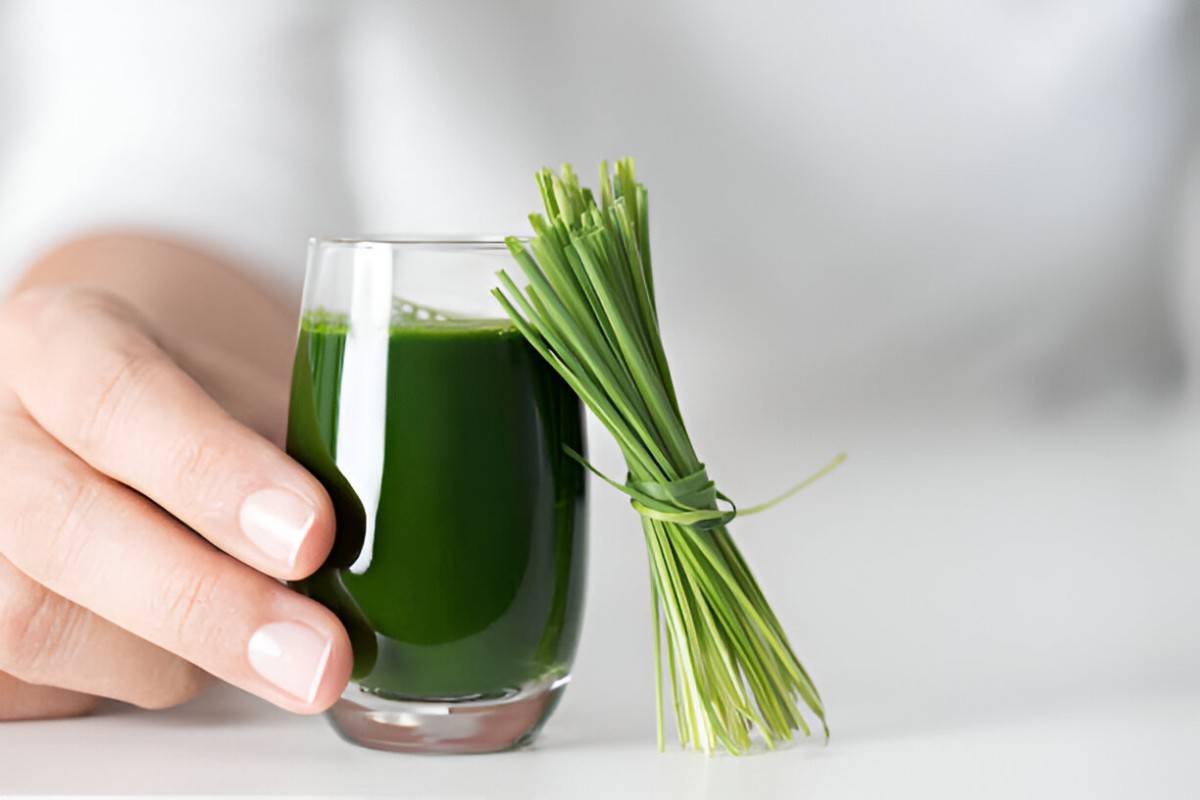Wheatgrass, the young grass of the wheat plant, has gained popularity in recent years as a potent superfood packed with essential nutrients and health-promoting compounds. From its impressive nutritional profile to its potential therapeutic effects, wheatgrass offers a wide array of benefits for overall well-being. In this article, we’ll explore the nutritional values, key health benefits, potential therapeutic uses, cautions, and ways to incorporate wheatgrass into your diet. A summary table is provided at the end for quick reference.
Summary Table
| Aspect | Details |
|---|---|
| Nutritional Values | Vitamins: A, C, E, K, B6, B12; Minerals: Iron, Calcium, Magnesium, Potassium, Zinc; Chlorophyll, Enzymes |
| Key Health Benefits | Nutrient-Rich Superfood, Detoxification, Immune System Support, Digestive Health, Anti-Inflammatory Properties |
| Potential Therapeutic Uses | Cancer Prevention, Blood Sugar Control |
| Cautions | Allergic Reactions, Contamination |
| Incorporation into Diet | Fresh Juice, Powder, Capsules or Tablets |
Nutritional Values
Wheatgrass is a nutritional powerhouse, containing an abundance of vitamins, minerals, antioxidants, and phytonutrients. Some of the key nutrients found in wheatgrass include:
- Vitamins: Vitamin A, Vitamin C, Vitamin E, Vitamin K, Vitamin B6, Vitamin B12
- Minerals: Iron, Calcium, Magnesium, Potassium, Zinc
- Amino Acids: Essential and non-essential amino acids, including glutamine, arginine, and glycine
- Chlorophyll: A green pigment with antioxidant properties
- Enzymes: Protease, lipase, amylase, which aid in digestion
Key Health Benefits
1. Nutrient-Rich Superfood
Wheatgrass is densely packed with essential vitamins, minerals, and antioxidants, making it an excellent addition to a balanced diet. It provides a concentrated source of nutrients that support overall health and vitality.
2. Detoxification
The chlorophyll content in wheatgrass has been linked to detoxification and cleansing effects in the body. Chlorophyll may help remove toxins and heavy metals, support liver function, and promote the elimination of waste products from the body.
3. Immune System Support
Rich in vitamins A, C, and E, wheatgrass helps bolster the immune system and defend against infections and illnesses. These vitamins play key roles in immune function, helping to strengthen the body’s natural defenses.
4. Digestive Health
Wheatgrass contains enzymes that aid in digestion and promote gut health. It may help alleviate digestive issues such as bloating, gas, and constipation by supporting the growth of beneficial bacteria in the gut.
5. Anti-Inflammatory Properties
Studies suggest that wheatgrass may possess anti-inflammatory properties, which can help reduce inflammation throughout the body. Chronic inflammation is linked to various health conditions, including heart disease, arthritis, and autoimmune disorders.
Potential Therapeutic Uses
Cancer Prevention
Some research indicates that wheatgrass may have potential anti-cancer properties, thanks to its high antioxidant content. While more studies are needed, preliminary evidence suggests that wheatgrass may help inhibit the growth of cancer cells and reduce the risk of certain types of cancer.
Blood Sugar Control
Wheatgrass may help regulate blood sugar levels and improve insulin sensitivity, making it beneficial for individuals with diabetes or pre-diabetes. Its low glycemic index and high fiber content contribute to better blood sugar management.
Cautions
Allergic Reactions
Some individuals may experience allergic reactions to wheatgrass, particularly those with wheat or grass allergies. If you have a known allergy to wheat or grass, it’s essential to exercise caution when consuming wheatgrass and consult with a healthcare professional if necessary.
Contamination
Contaminated or improperly grown wheatgrass may contain harmful bacteria or pesticides. It’s essential to source wheatgrass from reputable suppliers who follow strict quality control measures to ensure purity and safety.
How to Incorporate Wheatgrass into Your Diet
- Fresh Juice: Wheatgrass is commonly consumed as a fresh juice. Simply blend fresh wheatgrass with water or juice and strain the pulp to extract the liquid.
- Powder: Wheatgrass powder is also available and can be easily added to smoothies, juices, or water for a nutrient boost.
- Capsules or Tablets: For convenience, wheatgrass supplements in capsule or tablet form can be taken as a dietary supplement.
Wheatgrass offers a plethora of health benefits, from supporting detoxification and immune function to promoting digestive health and reducing inflammation. Incorporating wheatgrass into your diet can be a simple and effective way to boost your overall health and well-being. However, it’s essential to choose high-quality wheatgrass products and consult with a healthcare professional if you have any concerns or underlying health conditions.





